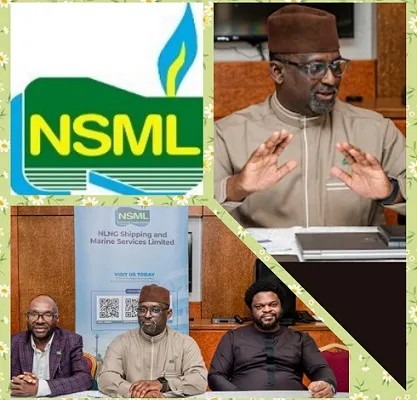Nigerian seafarers take over 85% crew of NLNG Ships–NSLM MD, Rabiu
...Says NLNG's Nigerianisation objective is a success
Maureen Aguta
The Nigerianisation objective of the Nigerian Liquefied Natural Gas (NLNG) Limited, has largely been realized.
This is as the Managing Director of NLNG Shipping and Marine Services Limited, Ahmad Rabiu has disclosed that since the creation of the Maritime Center of Excellence (MCOE), the specialised energy training arm of the company, Nigerian seafarers have taken over 85 per cent of the manning crew of the 13 LNG and LPG vessels on the fleet of the Nigerian LNG.
Rabiu who stated in an interview in Lagos, disclosed that NSML was created with the sole purpose of domesticating international maritime skill sets, locally; and providing opportunities for Nigerians to participate in that sphere.
His words: “We have a Nigerianization objective, which we’ve attained as 85 per cent of the seafarers on our vessel today are Nigerians. And it was a deliberate effort on our part to say, we’re a Nigerian company and in line with our purpose we want to domesticate and you cannot domesticate by simply importing foreigners to do the job so it’s about developing people locally and giving them the opportunity and that’s why 85 per cent of our seafarers today are Nigerians, from the highest to the lowest level.
“Mind you, we have 100 per cent capability. 5 per cent of foreigners is just for allow cross-fertilization of ideas by bringing some foreigners into our operations.”
According to him, NSML was able to achieve that objective by bringing the training courses to Nigerians to manage the ships. “We said to ourselves that there was no need for us to be sending people abroad for training let us domesticate the training center as much as we can. Yes, it was a lot of investments but then we did it and then we were able to domesticate and get all the accreditations.”
He further said that by domesticating the training, over 70 per cent of the cost of training personnel abroad was saved.
“If you can cut all of cost, you can then cut the training to at least 30 per cent. In our own case, what we had even seen is that it has even created access for more people to train at once. For example if you have a budget to train a certain number of people if you have to send them abroad you can only do about five or so but if you domesticate the center you cut the cost by 30% and then, you can train a lot more people.
Rabiu disclosed that currently we have 11 LNG vessels under our management and two LPG vessels that is, 13 under our management of course the goal is to expand.
I am sure some of you remember recently we took over the technical management of one of the most advanced LNG vessels in the world and these are new vessels really that are cutting edge in terms of efficiency, decarbonization, and carbon emission.
So we are one of the few ship management companies that have those kind of vessels under our management today. We’re hopeful we’ll take a second one sometime next year.
But most importantly we are equally diversifying our vessel, the type of vessels that we manage, which is why we have now moved into managing LPG vessels. We have two vessels under our management.
We are hopeful because LPG again is something within the African setting we believe is a good area. So we are quite hopeful that in the next year or so we believe is a good area so we’re quite hopeful that in the next year or so we’ll have a couple more coming to our management.
With regard to the number of cadets that have been on our vessels, it’s over 200 in the last six to seven years we typically do between 40 and 50 cadets a year.
Rabiu further expressed enthusiasm over the company’s flagship Corporate Social Responsibility (CSR) programmed, tagged; Clean Water Initiative, saying he is very passionate about the programme which aims to rid the Nigerian waters of plastic and debris.
He said, “When we came up with that, the Clean Waterway Initiative, it’s around really three elements. The first one is creating awareness with regards to the impact on marine life, on marine transportation, and even our health of plastic dumping usage in our waterways.
The second aspect of it is advocacy. Advocacy is necessary because for as long as you are cleaning and somebody is producing, using and dumping; the work done is zero. So there has to be a lot of advocacy with regards to the use of single-use plastic. And I’m glad to say certain governments in Nigeria have already imbibed it.
Lagos State, for example, have passed a law on that and those are the products of advocacy because it starts from the law, ensuring that look all this single-use plastics that we’ve turned into the way of life today that is convenient in the short term but they are potentially dangerous in the long term. So, again part of our initiative is really to drive advocacy. And then, finally action; and action is about how do we all in our own little sphere clean up our environment? We do that in Bonny on a quarterly basis trying to turn it into a monthly basis,” he said.


